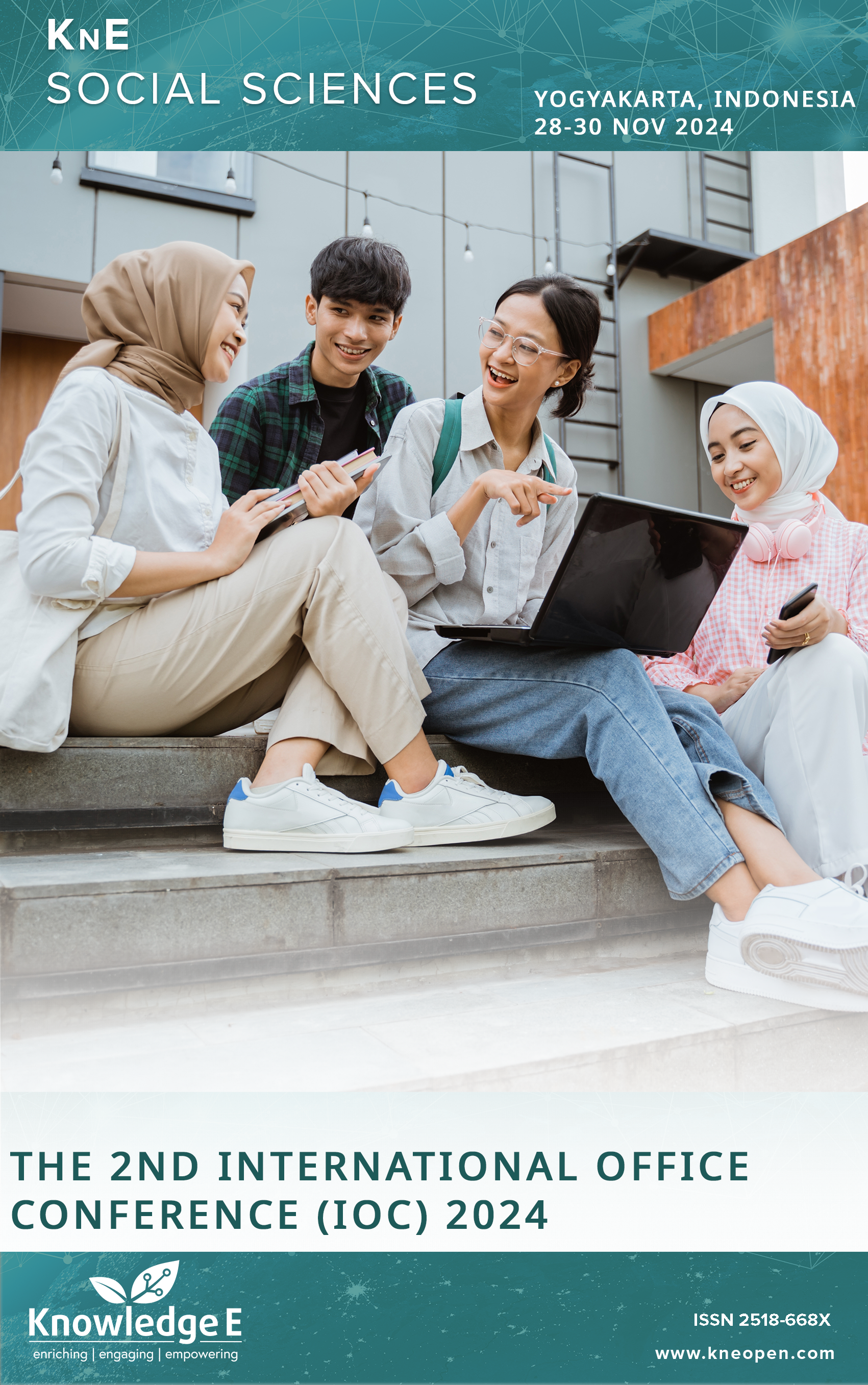Innovating Indonesian Language Learning for International Students through a Culturally Responsive Teaching Approach
DOI:
https://doi.org/10.18502/kss.v10i24.19818Keywords:
Indonesian language learning, culturally responsive teaching, learning innovation, inclusive educationAbstract
International students learning Indonesian often face challenges related to differences in culture, language and educational background. Therefore, culturally responsive teaching approaches are needed to create an inclusive and effective learning experience. This research aims to develop innovations in Indonesian language learning for international students through a culturally responsive teaching approach. This approach allows for the customisation of teaching methods, materials and interactions to suit the cultural diversity of international students. Through qualitative methods, this study analyses the specific needs of international students in learning Indonesian, as well as evaluates the effectiveness of various culturally responsive teaching strategies implemented. The results show that culturally responsive teaching can increase international students’ motivation, understanding, and participation in the learning process. In addition, culturally responsive teaching is proven to be helpful in overcoming language and social barriers often faced by international students. Thus, this paper provides recommendations for teachers to integrate cultural elements in Indonesian language learning, in order to achieve optimal learning outcomes for international students.
References
[1] Altbach PG, Knight J. The Internationalization of Higher Education: motivations and Realities. J Stud Int Educ. 2007;11(3-4):290–305.
[2] Direktorat Jenderal Pendidikan Tinggi. (2020). Surat Edaran Nomor 347/E.E3/KM/2020 tentang Pengelolaan Mahasiswa Asing pada Masa Pandemi Covid-19. Kementerian Pendidikan dan Kebudayaan Republik Indonesia. https://dikti.kemdikbud.go.id/wp-content/uploads/2020/04/347_pengelolaan-mhsasing. pdf
[3] Saidi B. Cross-cultural adaptation of international students in Moroccan higher education: the case study of Sub-Saharan African students at Mohammed First University. Saudi Journal of Language Studies. 2022;2(3):170–86.
[4] Skehan P. Individual Differences in Second Language Learning. Edward Arnold; 1991.
[5] Gay G. Preparing for Culturally Responsive Teaching. J Teach Educ. 2002;53(2):106– 16.
[6] Brown HD, Lee H. Teaching by Principles: An Interactive Approach to Language Pedagogy. 4th ed. Pearson Education; 2015.
[7] Ward C, Bochner S, Furnham A. The Psychology of Culture Shock. 2nd ed. Routledge; 2001.
[8] Byram M, Feng A. Culture and language learning: teaching, research and scholarship. Lang Teach. 2004;37(3):149–68.
[9] Villegas AM, Lucas T. Educating Culturally Responsive Teachers: A Coherent Approach. Albany (NY): State University of New York Press; 2002.
[10] Ellis. Second Language Acquisition. Oxford University Press;1997
[11] Alwasilah AC. Pengajaran Bahasa: Pendekatan Kebudayaan. PT Remaja Rosdakarya; 2015.
[12] Brown HD. Principles of Language Learning and Teaching. Pearson Education; 2007.
[13] Gay G. Culturally Responsive Teaching: Theory, Research, and Practice. Teachers College Press; 2000.
[14] Ladson-Billings G. Toward a Theory of Culturally Relevant Pedagogy. Am Educ Res J. 1995;32(3):465–91.
[15] Nieto S. Language, Culture, and Teaching: Critical Perspectives for a New Century. Routledge; 2010.
[16] Banks JA. An Introduction to Multicultural Education. Boston: Pearson; 2008.
[17] Gay G. Culturally Responsive Teaching: Theory, Research, and Practice. 3rd ed. Teachers College Press; 2010.
[18] Fredricks JA, Blumenfeld PC, Paris AH. School engagement: potential of the concept, state of the evidence. Rev Educ Res. 2004;74(1):59–109.
[19] Deci EL, Ryan RM. Intrinsic Motivation and Self-Determination in Human Behavior. New York: Plenum; 1985. https://doi.org/10.1007/978-1-4899-2271-7.
[20] Vygotsky LS. Mind in Society: The Development of Higher Psychological Processes. Harvard University Press; 1978.
[21] Nieto S. Affirming Diversity: The Sociopolitical Context of Multicultural Education. 3rd ed. New York: Longman; 2000.
[22] Ausubel DP. Educational Psychology: A Cognitive View. New York: Holt, Rinehart & Winston; 1968.
[23] Bonwell CC, Eison JA. Active Learning: Creating Excitement in the Classroom. ASHEERIC Higher Education Report. Volume 1. 1991.
[24] Banks JA. Multicultural Education: Issues and Perspectives. Wiley; 2006.
[25] Schön DA. The Reflective Practitioner: How Professionals Think in Action. New York: Basic Books; 1983.
Published
How to Cite
Issue
Section
License
Copyright (c) 2025 Rudi Umar Susanto, Syamsul Ghufron

This work is licensed under a Creative Commons Attribution 4.0 International License.

